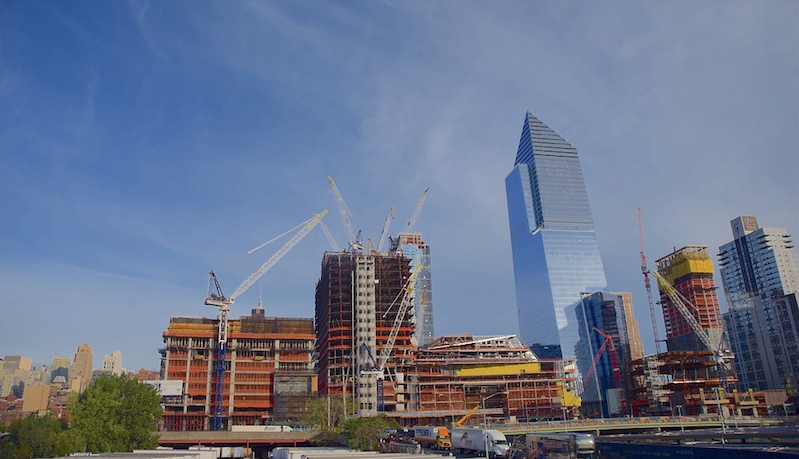The Bureau of Labor Statistics recently released its April jobs report, revealing that employment in the construction industry increased by 5,000 jobs (seasonally adjusted). While the economy added 211,000 jobs, total specialty trade employment contracted nominally, shedding 1,500 positions in April.
“While the country’s employment report is promising, the Construction Employers of America is concerned that specialty trade construction employment may be stagnating,” said Jack Jacobson, spokesperson for CEA. “Immediate action by Congress and the Administration on tax reform, repatriation of foreign corporate assets to domestic investment pools, and a public construction infrastructure package will shore up employment in the specialty construction sector and keep employment growing across the country.”
The BLS report did have a bright spot for the specialty construction industry as total residential and nonresidential specialty construction employment is up by 127,000 positions over the same point in 2016. April’s loss of 5,100 nonresidential specialty construction jobs serves as a warning and should spur policymakers to take immediate action.
“Our construction firms stand ready to rebuild America,” continued Jacobson. “CEA members continue to invest in workforce development, training, and robust apprenticeship programs to prepare the next generation of blue collar workers to build critical infrastructure. Federal action today will drive further job growth and employ more Americans that will strengthen the middle class for years to come.”
Related Stories
Industry Research | Dec 28, 2022
Following a strong year, design and construction firms view 2023 cautiously
The economy and inflation are the biggest concerns for U.S. architecture, construction, and engineering firms in 2023, according to a recent survey of AEC professionals by the editors of Building Design+Construction.
Self-Storage Facilities | Dec 16, 2022
Self-storage development booms in high multifamily construction areas
A 2022 RentCafe analysis finds that self-storage units swelled in conjunction with metros’ growth in apartment complexes.
Market Data | Dec 13, 2022
Contractors' backlog of work reaches three-year high
U.S. construction firms have, on average, 9.2 months of work in the pipeline, according to ABC's latest Construction Backlog Indicator.
Contractors | Dec 6, 2022
Slow payments cost the construction industry $208 billion in 2022
The cost of floating payments for wages and invoices represents $208 billion in excess cost to the construction industry, a 53% increase from 2021, according to a survey by Rabbet, a provider of construction finance software.
Mass Timber | Dec 1, 2022
Cross laminated timber market forecast to more than triple by end of decade
Cross laminated timber (CLT) is gaining acceptance as an eco-friendly building material, a trend that will propel its growth through the end of the 2020s. The CLT market is projected to more than triple from $1.11 billion in 2021 to $3.72 billion by 2030, according to a report from Polaris Market Research.
Market Data | Nov 15, 2022
Construction demand will be a double-edged sword in 2023
Skanska’s latest forecast sees shorter lead times and receding inflation, but the industry isn’t out of the woods yet.
Reconstruction & Renovation | Nov 8, 2022
Renovation work outpaces new construction for first time in two decades
Renovations of older buildings in U.S. cities recently hit a record high as reflected in architecture firm billings, according to the American Institute of Architects (AIA).
Market Data | Nov 3, 2022
Building material prices have become the calm in America’s economic storm
Linesight’s latest quarterly report predicts stability (mostly) through the first half of 2023
Building Team | Nov 1, 2022
Nonresidential construction spending increases slightly in September, says ABC
National nonresidential construction spending was up by 0.5% in September, according to an Associated Builders and Contractors analysis of data published today by the U.S. Census Bureau.
Hotel Facilities | Oct 31, 2022
These three hoteliers make up two-thirds of all new hotel development in the U.S.
With a combined 3,523 projects and 400,490 rooms in the pipeline, Marriott, Hilton, and InterContinental dominate the U.S. hotel construction sector.

















